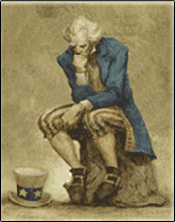
–>
July 20, 2022
We need to … dismantle the ideas of patriarchy, misogyny, racism and capitalism, and [decide] what autonomy and self-determination needs to look like for women. Ilhan Omar, Dec. 5, 2017
‘); googletag.cmd.push(function () { googletag.display(‘div-gpt-ad-1609268089992-0’); }); }
The evil “patriarchy” that saved Ilhan Omar from the violence in her native Somalia by bringing her to America when she was a child is apparently dedicated to the oppression of American women. Rep. Alexandria Ocasio Cortez (AOC) states that “Patriarchy [is] about women not having control over their lives.” Rep. Ayanna Pressley states that “Patriarchy threatens all women” and that “abortion prohibitions are rooted in patriarchy and white supremacy.” Rep. Cori Bush asks for help to “smash the patriarchy”.
Politico gushes that “Rather than … set about dismantling the patriarchy by taking on sex-discrimination cases, Sen. Elizabeth Warren chose to enter male fields and compete toe-to-toe.” There is even an “Elizabeth Warren Crush the  Patriarchy Feminist Floral Sweatshirt” commemorating her 2020 run for the presidency, illustrating that one can even make good capitalist dollars off such anti-capitalist tropes. AOC even told Vogue that she courageously fights the patriarchy with her confidence-boosting trademark Latina “perfect red lip”.
Patriarchy Feminist Floral Sweatshirt” commemorating her 2020 run for the presidency, illustrating that one can even make good capitalist dollars off such anti-capitalist tropes. AOC even told Vogue that she courageously fights the patriarchy with her confidence-boosting trademark Latina “perfect red lip”.
By “the patriarchy” feminists do not merely mean a culture in which lineage is traced through the male but rather a culture in which males are dominant and oppress women. AOC, Omar, Pressley, Warren, Powers and others make clear that their concept of the patriarchy is, conveniently for their careers, a motley grab-bag of all the political bogymen they oppose: misogyny, racism, white supremacy, and capitalism.
‘); googletag.cmd.push(function () { googletag.display(‘div-gpt-ad-1609270365559-0’); }); }
The surprising presence of capitalism in Omar’s description derives from the fact that the feminist concept of the patriarchy traces to Marxism (i.e., communism. Marx employed the notion of the “patriarchal family” to refer to “the social relation of domestic production … that performed necessary functions under capitalism”). More than 50 years ago, modern feminist theorists began linking Marxism to their burgeoning movement. Since the concept has Marxist roots, it is necessary to review the basic tenets of Marxism if one is to understand the linkage.
Marx’s core view is that a capitalist system is characterized by a class struggle between the capitalists (the “bourgeois”), who “own the means of production,” that is, the factories, machines, raw materials, etc., needed to produce a commodity, and the workers who are forced to sell their labor to capitalists. Since Marx holds that human labor is the source of economic value, and since the capitalist does not pay the workers for the “surplus value” the workers have added to the commodity via their labor, the capitalist exploits the workers. The reason the workers enter into this unfair bargain is that since the capitalist owns “the means of production”, the workers have no real choice in the matter.
Engels, in an 1884 essay, fleshes out Marx’s concept of the patriarchy explaining that the modern family is “based on the … enslavement of the woman,” where the man as the bread-winner “is the bourgeois [capitalist]” while “the wife represents the proletariat.”
First, Engels’s analogy between the husband and wife as, respectively, the capitalist and the proletariat, is strained at best. The idea that the husband who, in Marx’s view, is himself enslaved by the capitalist, and who, upon returning home exhausted with his meagre wages, gives them to his wife to manage the household, “owns the means of production” within the family like a capitalist in a factory is bizarre.
More importantly, Marx states on the first page of Vol. 2 of Capital that his aim is to describe a “pure” capitalist system that abstracts from an enormous number of factors found in actual historical “capitalist” economies. Marx thereby makes a plethora of assumptions that are simply not satisfied in modern Western countries. The most obvious is that most Western democracies do not have a pure capitalist system but are mixed economies in which “free markets coexist with government intervention [including] state-owned enterprises (such as public health or education systems), regulations , subsidies,” that benefit people. In the United States, unlike Marx’s abstraction in Capital, the government provides an enormous number of services to women that distinguish them from the “slaves” of the fantasized Marxist patriarchy. Further, women outnumber men at colleges by a large margin. Young women now out earn young men in many major US cities, and so on.
Despite this, feminists like Kirsten Powers thinks it is obvious women in the United States are oppressed by a patriarchy,
‘); googletag.cmd.push(function () { googletag.display(‘div-gpt-ad-1609268078422-0’); }); } if (publir_show_ads) { document.write(“
…if you don’t think we have a patriarchal system please explain to me why we’ve never had a woman president. … 57 other countries have had women heads of state. … The most basic definition of patriarchy is a society controlled by men. … [T]he United States absolutely meets the definition.
In fact, this is quite easy to explain. Powers has, apparently, forgotten that the United States is a democracy in which women outnumber men and vote in higher percentages than men. The Center for American Women and Politics reports that in the 2016 election that so distressed the Democrats, “9.9 million more women than men voted [and] 63.3% of eligible female adults went to the polls, compared to 59.3% of eligible male adults. Indeed, it appears that more white women voted for Trump in 2016 than for the white woman Hillary Clinton. Since, in a democracy, the voters are the ultimate “control” on their representatives, Powers must take this problem up with her sisters who regularly vote for men to represent them.
Ironically, Powers elsewhere claims that white women (like herself) benefit from the patriarchy by being associated with white men, a rather peculiar notion of patriarchy that benefits most of the women in the country, including her. One must wonder whether Powers even knows what her thesis is. Finally, Powers’s pretense that patriarchy is specific to “white” culture is literally silly. Such claims, as usual, are not factual language but rather are an attempt to construct a narrative for political purposes and get invited back on CNN.
One of the assumptions that underlies Powers’s argument, as well as many of the usual grievance mongers on the left, is the absurd assumption that a woman can only be represented by another woman, or, more generally, that a person can only be properly represented by a member of their own group, blacks by blacks, Asians by Asians, gays by gays, etc. However, in a non-racist and non-sexist view, should this still be permissible, a person can be perfectly represented by someone of a different racial or gender or sexual identity, e.g., a white person by Allen West or a black person by Joe Manchin.
Since Marxist and communist ideas could never become popular in the United States if their lineage were known, these had to be introduced by subterfuge. The specter of the evil bogyman patriarchy is employed to sow division in the country and achieve political power without acknowledging its Marxist origins. One cannot, however, assume that any of these people actually know what they are doing or saying, resulting in the spectacle of privileged US politicians and feminists, many of whom are or will be worth millions or tens of millions of dollars, slavishly addicted the grievances they memorized as adolescents in Sociology 101.
<!– if(page_width_onload <= 479) { document.write("
“); googletag.cmd.push(function() { googletag.display(‘div-gpt-ad-1345489840937-4’); }); } –> If you experience technical problems, please write to [email protected]
FOLLOW US ON
<!–
–>
<!– _qoptions={ qacct:”p-9bKF-NgTuSFM6″ }; ![]() –> <!—-> <!– var addthis_share = { email_template: “new_template” } –>
–> <!—-> <!– var addthis_share = { email_template: “new_template” } –>







